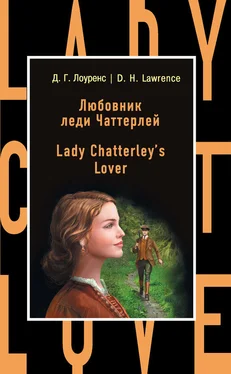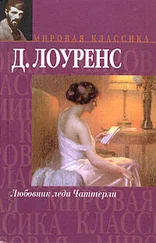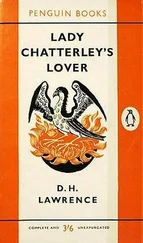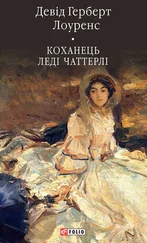Д. Г. Лоуренс / D. H. Lawrence
Любовник леди Чаттерлей / Lady Chatterley's Lover
© Бурмакова О. П., комментарии и словарь, 2017
© ООО «Издательство «Эксмо», 2017
* * *
«Языковая компетенция – вещь капризная. Это как балет, как умение играть на музыкальном инструменте, как гимнастика, как любое действие, которое требует навыка. Либо вы идете вперед, либо начинаете сползать назад.
А самое главное – не прекращать изучение языка. Это может быть чтение оригинальной литературы. Любите читать про любовь – читайте про любовь, любите фантастику – читайте фантастику. Но читайте обязательно!»
Н. А. Бонк, лингвист, педагог, автор наиболее популярных в России учебников английского языка
Ours is essentially a tragic age, so we refuse to take it tragically. The cataclysm has happened, we are among the ruins, we start to build up new little habitats, to have new little hopes. It is rather hard work: there is now no smooth road into the future: but we go round, or scramble over the obstacles. We’ve got to live, no matter how many skies have fallen.
This was more or less Constance Chatterley’s position. The war [1] Первая Мировая война (1914–1918 гг.)
had brought the roof down over her head. And she had realized that one must live and learn.
She married Clifford Chatterley in 1917, when he was home for a month on leave. They had a month’s honeymoon. Then he went back to Flanders: [2] Фландрия, или поля Фландрии – обобщенное название зоны боевых действий Первой Мировой войны, приходившихся в основном на территорию Фламандского региона Бельгии; «поехать во Фландрию» – отправиться на фронт.
to be shipped over to England again six months later, more or less in bits. Constance, his wife, was then twenty-three years old, and he was twenty-nine.
His hold on life was marvellous. He didn’t die, and the bits seemed to grow together again. For two years he remained in the doctor’s hands. Then he was pronounced a cure, and could return to life again, with the lower half of his body, from the hips down, paralysed for ever.
This was in 1920. They returned, Clifford and Constance, to his home, Wragby Hall, the family “seat”. His father had died, Clifford was now a baronet, [3] Баронет – британский аристократический титул, передающийся по наследству по мужской линии, обычно вместе с имением.
Sir Clifford, and Constance was Lady Chatterley. [4] К носителю титула баронета обращаются «сэр» и по имени (сэр Клиффорд), а к его супруге – «леди» и по фамилии (леди Чаттерлей).
They came to start housekeeping and married life in the rather forlorn home of the Chatterleys on a rather inadequate income. Clifford had a sister, but she had departed. Otherwise there were no near relatives. The elder brother was dead in the war. Crippled [5] Слово cripple (калека) и его производные, используемые в отношении инвалидов, в современном английском языке считаются оскорбительными.
for ever, knowing he could never have any children, Clifford came home to the smoky Midlands to keep the Chatterley name alive while he could.
He was not really downcast. He could wheel himself about in a wheeled chair, and he had a bath-chair with a small motor attachment, so he could drive himself slowly round the garden and into the line melancholy park, of which he was really so proud, though he pretended to be flippant about it.
Having suffered so much, the capacity for suffering had to some extent left him. He remained strange and bright and cheerful, almost, one might say, chirpy, with his ruddy, healthy-looking face, and his pale-blue, challenging bright eyes. His shoulders were broad and strong, his hands were very strong. He was expensively dressed, and wore handsome neckties from Bond Street. [6] Бонд-стрит – улица в торговом районе Лондона, где располагались дорогие и престижные магазины одежды, обслуживавшие представителей элиты.
Yet still in his face one saw the watchful look, the slight vacancy of a cripple.
He had so very nearly lost his life, that what remained was wonderfully precious to him. It was obvious in the anxious brightness of his eyes, how proud he was, after the great shock, of being alive. But he had been so much hurt that something inside him had perished, some of his feelings had gone. There was a blank of insentience.
Constance, his wife, was a ruddy, country-looking girl with soft brown hair and sturdy body, and slow movements, full of unusual energy. She had big, wondering eyes, and a soft mild voice, and seemed just to have come from her native village. It was not so at all. Her father was the once well-known R. A., [7] R. A. – Royal Academician – член Королевской Академии художеств.
old Sir Malcolm Reid. Her mother had been one of the cultivated Fabians [8] Фабианское общество – британская социалистическая организация реформистского направления, отличавшаяся на описываемый период прогрессивными взглядами.
in the palmy, rather pre-Raphaelite [9] Прерафаэлиты – направление в английской литературе и искусстве второй половины XIX в., противопоставлявшее устоявшимся принципам искусства викторианской эпохи новые веяния, вдохновленные идеалами Возрождения. Их основным оппонентом была Королевская Академия художеств, как учреждение, преимущественно определявшее развитие британского искусства.
days. Between artists and cultured socialists, Constance and her sister Hilda had had what might be called an aesthetically unconventional upbringing. They had been taken to Paris and Florence and Rome to breathe in art, and they had been taken also in the other direction, to the Hague and Berlin, to great Socialist conventions, where the speakers spoke in every civilized tongue, and no one was abashed.
The two girls, therefore, were from an early age not the least daunted by either art or ideal politics. It was their natural atmosphere. They were at once cosmopolitan and provincial, with the cosmopolitan provincialism of art that goes with pure social ideals.
They had been sent to Dresden at the age of fifteen, for music among other things. And they had had a good time there. They lived freely among the students, they argued with the men over philosophical, sociological and artistic matters, they were just as good as the men themselves: only better, since they were women. And they tramped off to the forests with sturdy youths bearing guitars, twang-twang! They sang the Wandervogel [10] Wandervogel (нем. «вольная птица») – популярное немецкое молодежное движение, основанное в 1901 г. вокруг идей избавления от наложенных обществом ограничений, возвращения к природе, свободы духа.
songs, and they were free. Free! That was the great word. Out in the open world, out in the forests of the morning, with lusty and splendid-throated young fellows, free to do as they liked, and – above all – to say what they liked. It was the talk that mattered supremely: the impassioned interchange of talk. Love was only a minor accompaniment.
Читать дальше



![Дэвид Лоуренс - Lady Chatterley's Lover [С англо-русским словарем]](/books/26613/devid-lourens-lady-chatterley-s-lover-s-anglo-thumb.webp)







